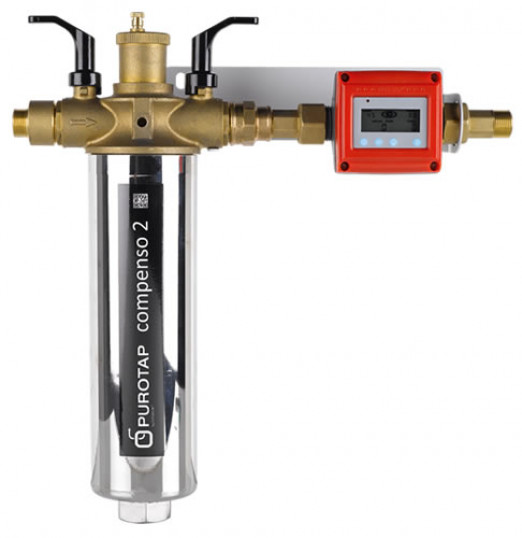London and Quadrant have successfully installed and adopted a chemical free water treatment approach to their District Heating system at Bollo Bridge Road in South Acton.
The site was suffering from poor water quality and corrosion resulting in component failures on pumps, pipework, boilers and heat interface units resulting in disruption and downtime of the system leaving residents without heating and hot water on more than one occasion.
To try and control the corrosion more chemicals were added, a costly process which only accelerated the issues as overdosing with chemicals introduced even more problems with seal and gasket failures and increased conductivity.
Faced with another chemical clean quoted at £ 27k alongside more disruption and downtime the Senior Building Services Engineer at L & Q decided to adopt a different approach and to follow the VDI 2035 German standard for chemical-free water treatment.
Water samples were taken and laboratory tested so the starting point was known and a magnesium anode Elysator 100C was installed in a side stream application replacing the existing side stream filter and chemical dosing pot.
To work with the Elysator unit a Purotap Compenso filling device was installed on the pressurisation unit. The Compenso provides demineralised water on demand using ion exchange resin removing harmful salts, alkaline and hardness and ensuring that any refilling water is low in conductivity with a controlled pH. The cost of these two items of equipment was £9.5K making the ROI instant.
The Elysator and Purotap were both installed by one engineer over a two day period with no draining down, no effluent discharge, no interruption to supply and no loss of service to the residents. The Elysator then commenced its gradual non-aggressive clean filtering only 20 litres per minute, equating to 28,800 litres of system water passing through the Elysator over a 24 hour period. Corrosion debris was collected within the Elysator during this initial cleaning period as the magnesium hydroxide breaks down sludge and scale and brings it back to the Elysator.
The unit was supplied on a 90 day trial but after very successful results in the first 45 days the trial was signed off as the bacteria which was present in the system had been removed to the level required by VDI 2035, a standard which is stricter than BSRIA levels. A blow down procedure to flush out the collected debris was carried out monthly as well as laboratory analysed water sampling.
During the trial period other works were carried out on the system to rectify the damage caused by the historic corrosion but despite this disruption the new water quality was maintained by the self-regulation of the anode and because the fill water supplied by the Purotap Compenso was demineralised.
The client’s new service company who have carried out the rectification works now look after the simple maintenance of the Elysator and Purotap, knowing that all is required to maintain the VDI levels is to ensure the anode is replaced every three years at a cost of £ 575.
